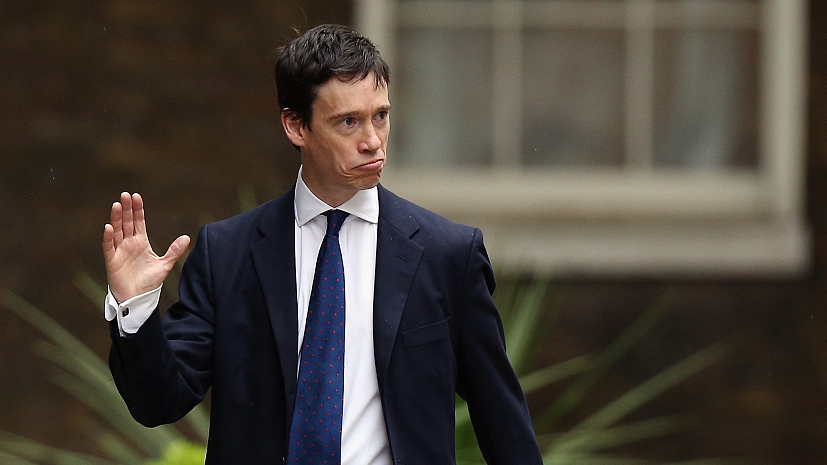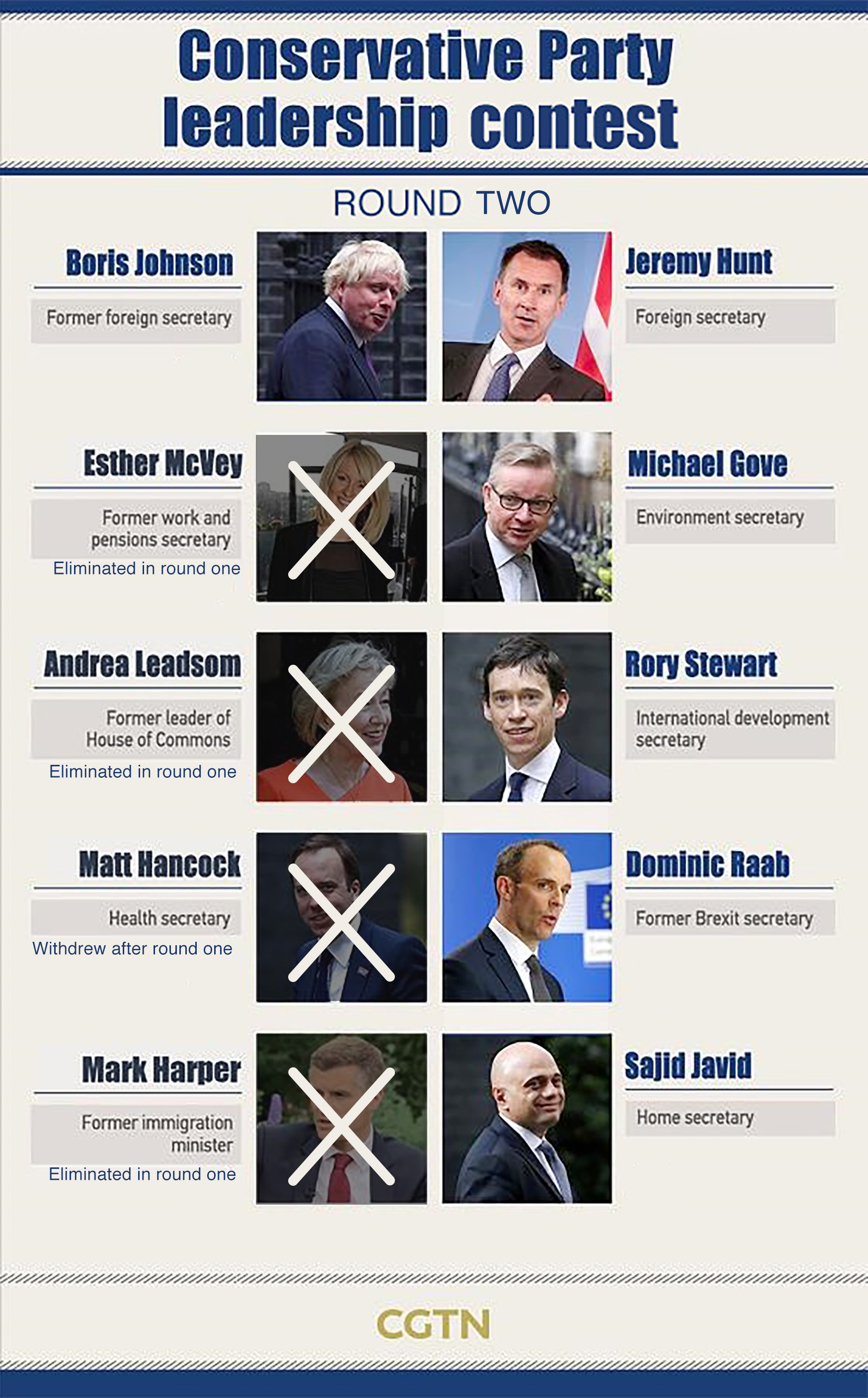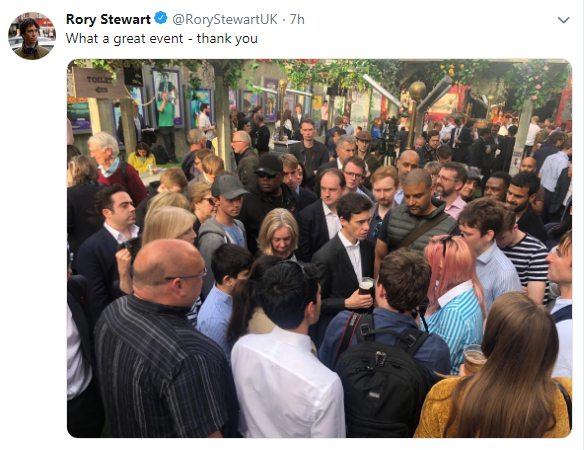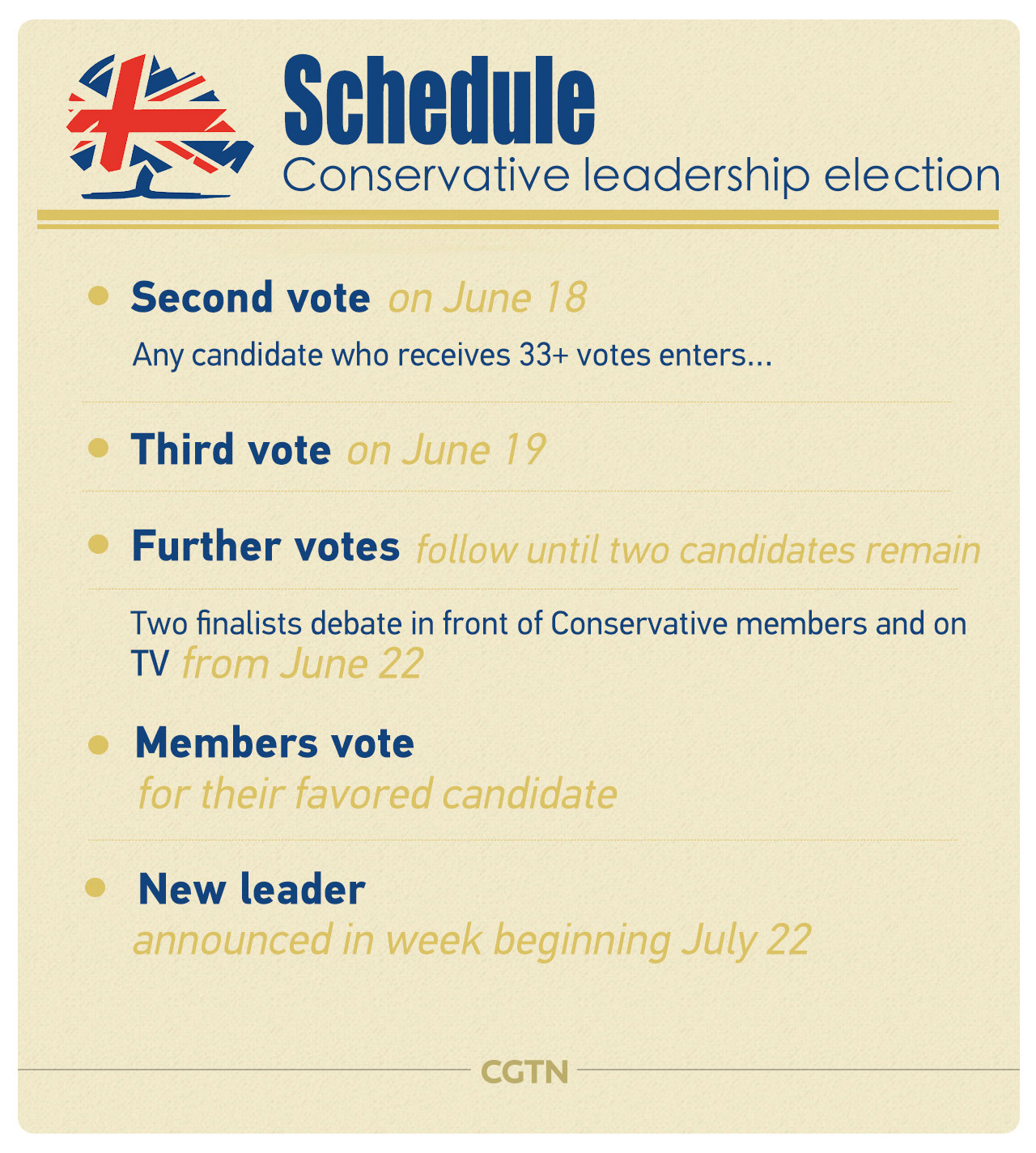

The battle to be the next leader of Britain's Conservative Party, and likely the country's prime minister, moves into round two of phase one on Tuesday with a fresh set of votes and six contenders remaining.
The contest to replace Theresa May risked turning into a procession for Boris Johnson after a big win in round one, but while he remains the clear favorite – and as he continues to avoid media appearances – an outsider with a unique approach is dominating the headlines.
International Development Secretary Rory Stewart has only been in May's Cabinet for a few weeks, but a mix of social media savvy, straight-talking centrism and an unusual backstory has given him momentum to challenge for a place in the final two.

Stewart wrote a best-selling travel book about his 10,000-kilometer walk across Iran, Afghanistan, Pakistan, India and Nepal, briefly served in the army, tutored princes William and Harry, worked across the world as a diplomat – including a spell as a provincial deputy governor in Iraq – and taught at Harvard, before becoming an MP for the northern constituency of Penrith in 2010.
The 46-year-old, who was born in Hong Kong, emerged as a social media star with his #RoryWalks campaign, which sees him arriving in a town and sending out a video message urging people to come and talk to him then livestreaming or recording his interactions.
Read more:
The contenders to be next UK PM
Meet the Conservative Party members
"Theoretically this should be catastrophic for me," Stewart, who speaks upwards of 10 languages, told journalists at a question and answer session that Johnson refused to attend on Monday. "Oddly what seems to be happening is that people are refreshed."
His policy solutions are focused on addressing the "small injustices in daily life" that he discovers in talks with strangers rather than broad-brush ideas. His admission that he smoked opium at a wedding in Iran also helped pick up some early media attention.

Twitter Screenshot
Stewart is the only candidate in the contest to insist he would not take Britain out of the European Union without a deal, a stance that is helping him gain support among moderate MPs.
His insistence that the other five candidates are selling an unrealistic view of Brexit is also striking a chord. He argues that May's unpopular deal is the only option because the EU won't renegotiate the agreement and the UK parliament won't allow a no-deal exit.
Read more:
Why frontrunner in Tory race should be wary
Will Johnson pay for skipping debate?
A sign of his momentum lies in the efforts of other candidates to prevent him from winning the 33 votes necessary to progress to the third round. Michael Gove, another contender, warned MPs "it would be a mistake to put forward two candidates to the final round who will polarise our party" in an opinion piece published in The Times on Tuesday.
Gove argues two Brexit-backers must be on the two-person shortlist, from which Conservative members will choose the next leader. Stewart insists Brexit must go ahead, but voted to Remain in the 2016 referendum.

Stewart only narrowly avoided elimination in round one of the leadership contest, securing 19 votes among the 313 Conservative MPs. But he has since been backed by previous supporters of Matt Hancock, who withdrew from the race on Friday.
On Monday, he was endorsed by de facto deputy prime minister David Lidington and said he had enough backers to continue if MPs "do what they say" in Tuesday's vote.
Among non-Conservatives, the outsider is a hit. He was the clear winner of a TV debate on Sunday, judging by social media reaction and newspaper reviews.
But while Stewart is gaining momentum with MPs, he faces an uphill battle within his party. The more established candidates are out to stop him, and Johnson remains the overwhelming favorite.

Copyright © 2018 CGTN. Beijing ICP prepared NO.16065310-3
Copyright © 2018 CGTN. Beijing ICP prepared NO.16065310-3